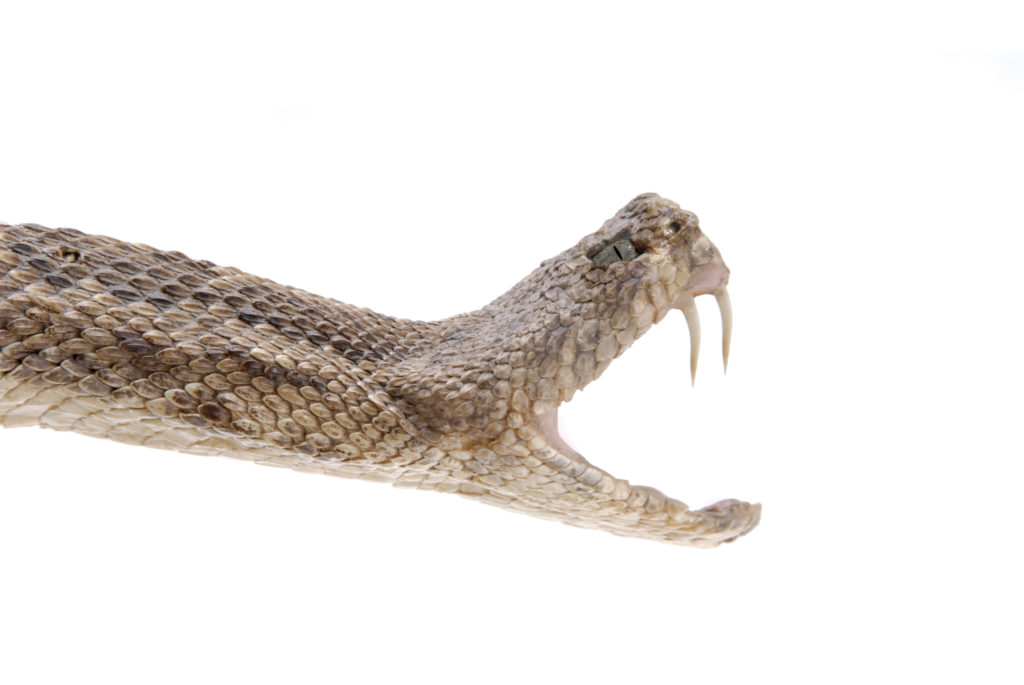In the UK, there is only one wild, poisonous snake and that is the Adder. Some snakes kept in captivity can be poisonous. Obviously these are not in the countryside. In the UK snake bites are more common than most people think. Not only that, but a number of dogs are also bitten. In most cases, snakes will not attack a person; they would much rather move away from the threat. However, they can bite.
With humans, lots of cases occur when a person walks through some undergrowth and accidentally startles or steps on a snake. Dogs will try and play with the snake, which will only end badly. The most common times for snake bites in the UK are from February to October with the peak season from June to August.
Signs and Symptoms
When you are bitten, you may think it is just a small cut, but the area will quickly swell. To start with, it may feel like a wasp sting but as time goes on, the pain will get worse. Often in 15 minutes time, the pain would be so excruciating you would not be able to walk if it had bitten your foot. The area becomes very red and the bite marks start to appear as a white circle. After a while, red blotches appear all over the body. Dizziness, chest pain, nausea and vomiting, breathing difficulties and unconsciousness can follow. An anaphylactic reaction can occur as the body reacts to the poison. If this happens, watch out for a swollen tongue and throat.
What to do
If you are a First Aider, as always you have to look after yourself first. Make sure that the snake is not lurking close by, ready to strike again, this time at you. Get the patient to the hospital as soon as possible to allow for quick administering of the correct antivenom. If it is possible at the time of the bite, look at the snake or take a picture if safe to do so. This allows the doctors to establish what species the snake was and give the correct treatment. The general advice for treatment is to call the emergency services. Note the time of the bite, reassure the patient but DO NOT bandage the bite. The site of the bite will swell, and if bandaged, blood flow will be constricted. If pain relief is given use paracetamol over ibuprofen as this can cause bleeding and clotting problems which will make things worse. It may be necessary to splint the limb to reduce movement and slow down the transit of the poison around the body.
For more information on training courses, visit our “Courses” page which also includes our First Responder and First Person on Scene (FPOS) Courses.

